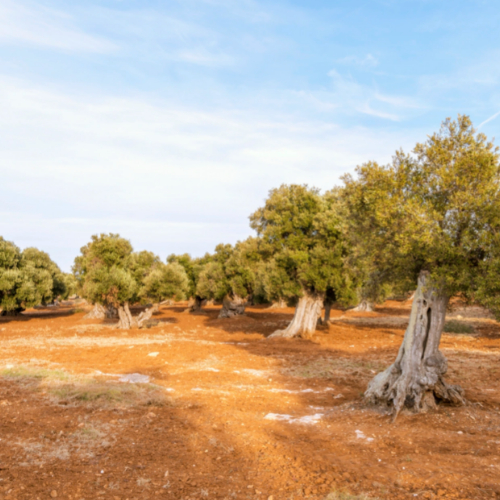Oil and Olive Trees
Salento’s olive trees are a fundamental part of the region’s natural and cultural heritage. For centuries, these centuries-old plants have been cultivated in the red, limestone soil typical of the area, producing one of Italy’s finest extra virgin olive oils. Characterized by twisted trunks and sculptural shapes, Salento’s olive trees are symbols of longevity and resilience as they survive harsh weather conditions such as drought and intense heat.
The oil produced from Salento’s olive trees is prized for its intense, fruity flavor with herbaceous and slightly spicy notes, making it an ideal ingredient for Mediterranean cuisine. The cultivation of olive trees is a tradition that has been handed down for generations, and each tree represents a living part of the history and identity of this land.
In recent years, however, olive trees in the Salento region have been threatened by Xylella fastidiosa, a bacterium that has caused many plants to dry out, causing serious damage to both the landscape and the local economy. However, efforts to combat the disease and preserve this natural wealth continue, with an increasing focus on sustainability and environmental protection.
The olive trees of Salento are thus more than just a crop: they are a symbol of connection between past and future, between nature and culture, and between tradition and innovation.


